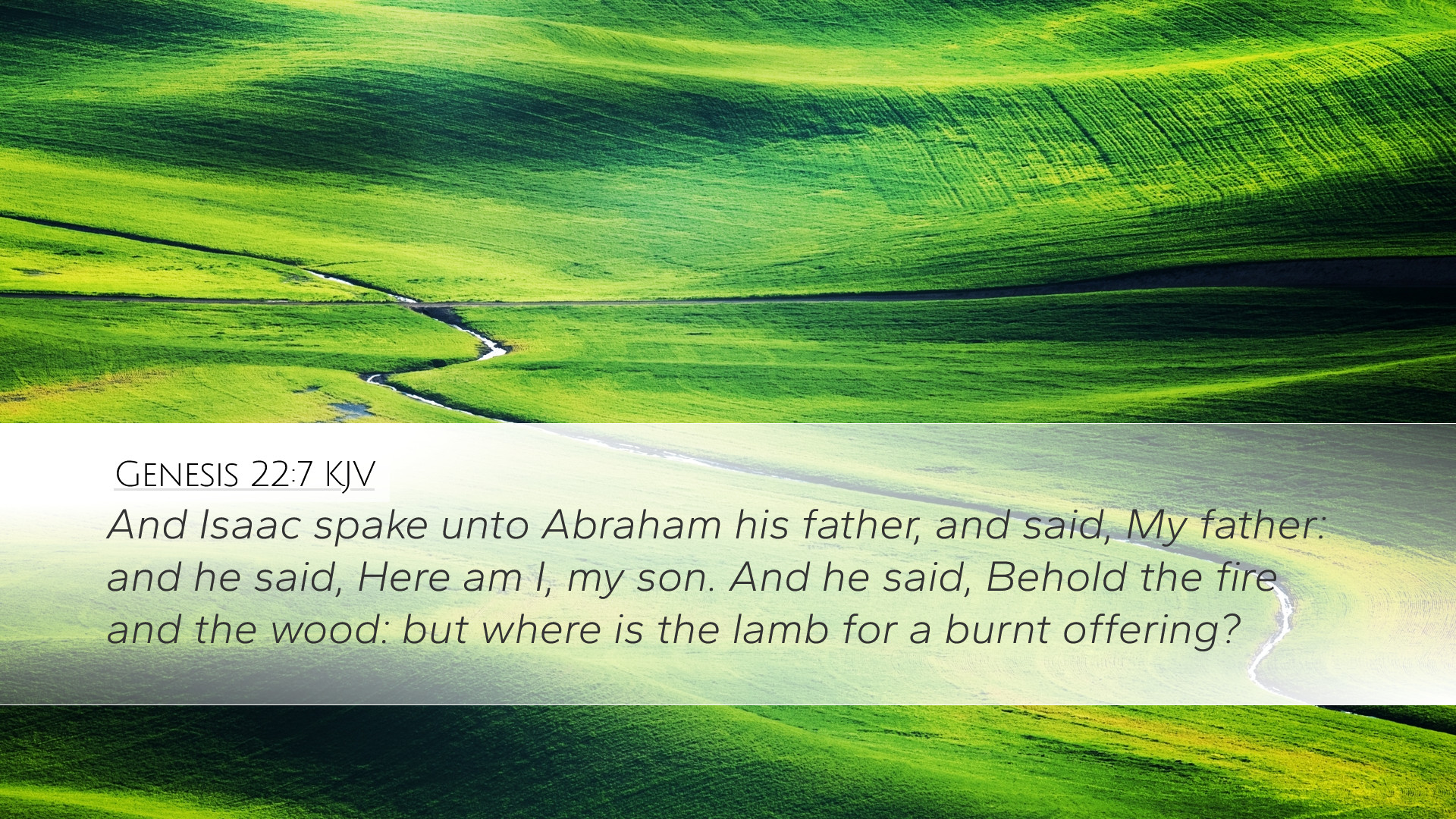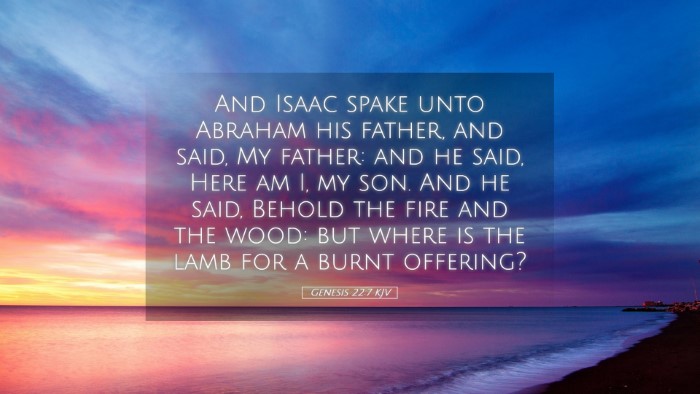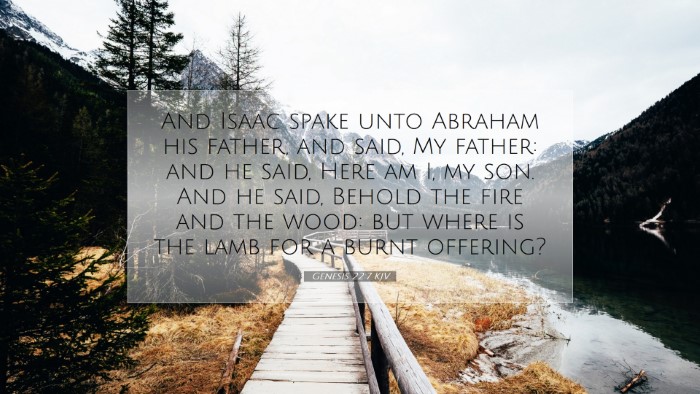Commentary on Genesis 22:7
Genesis 22:7 states: "And Isaac spoke to Abraham his father and said, 'My father!' And he said, 'Here I am, my son.' Then he said, 'Look, the fire and the wood, but where is the lamb for a burnt offering?'"
This verse captures a poignant moment between Abraham and Isaac during a critical episode in the narrative of Abraham’s faith and obedience. It provides a profound teaching opportunity for pastors, students, theologians, and Bible scholars on the themes of sacrifice, faith, and divine provision.
Context and Background
In this chapter, God tests Abraham's faith by commanding him to sacrifice his only son, Isaac, on Mount Moriah. The gravity of this command cannot be overstated. Isaac's inquiry reveals his innocence and highlights the stark reality of the situation; he is aware of the elements needed for a sacrifice but is troubled by the absence of the sacrificial lamb.
The Dialogue between Father and Son
The Significance of Abraham's Response
Abraham’s reply, “Here I am, my son,” denotes his readiness and willingness to engage with Isaac. This phrase, common in the Scripture, signifies attentiveness and a compassionate response, indicating Abraham’s affection despite the circumstances.
Isaac's Perplexity
Isaac’s question demonstrates his awareness of the sacrificial process. The absence of the lamb prompts deeper theological reflection on the nature of sacrifice:
- Anticipation of God’s Provision: Isaac’s question sets the stage for a greater revelation of God’s provision as it foreshadows the coming of Christ as the ultimate sacrifice.
- Faith in the Unknown: This moment reflects a transition from understanding to sheer faith. Isaac exemplifies a youthful trust in his father even amid confusion.
Theological Insights
Foreshadowing Christ
Several commentators, including Matthew Henry and Albert Barnes, highlight the typological significance of this encounter. Isaac, carrying the wood for the burnt offering, metaphorically parallels Christ carrying His cross to Golgotha. As Abraham prepares to sacrifice his beloved son, it mirrors the future sacrifice of God’s Son for humanity.
The Lesson of Obedience
The exchange between Abraham and Isaac provides a profound lesson on obedience. Albert Barnes comments on Abraham's unwavering faith; he believes that even if he were to sacrifice Isaac, God had the power to raise him from the dead. This speaks to the depth of Abraham's faith and trust in God's promises.
The Nature of True Worship
By asking about the lamb, Isaac inadvertently draws attention to the existential question of worship: what does one offer to God in sincere devotion? Abraham’s response will soon reveal a profound truth about worship involving sacrifice and trust.
Pastoral Applications
- Understanding Sacrifice: Pastors can encourage congregations to reflect on what it means to offer sacrifices in their own lives. This includes both tangible offerings and the sacrifices of time, resources, and personal desires.
- Encouragement in Trials: Abraham’s journey exemplifies the arduous path of faith amid trials. Believers can take comfort in knowing that God asks for trust even when the path is unclear.
- God’s Provision: Emphasizing the narrative's climax where God provides a ram encumbered in the thicket, pastors can remind their congregations that God sees their needs and provides at the right time.
Summary
Genesis 22:7 is rich with layers of meaning, inviting deeper exploration of faith, sacrifice, and divine provision. The relationship between Abraham and Isaac emphasizes a father’s duty to nurture and lead his children in faith, prompting insightful reflections on our relationships with God.
In summary, this verse serves as a nexus where obedience meets ultimate trust in God, revealing profound spiritual truths pertinent to believers today. It calls us to examine the nature of our own sacrifices and the faith with which we approach God.


